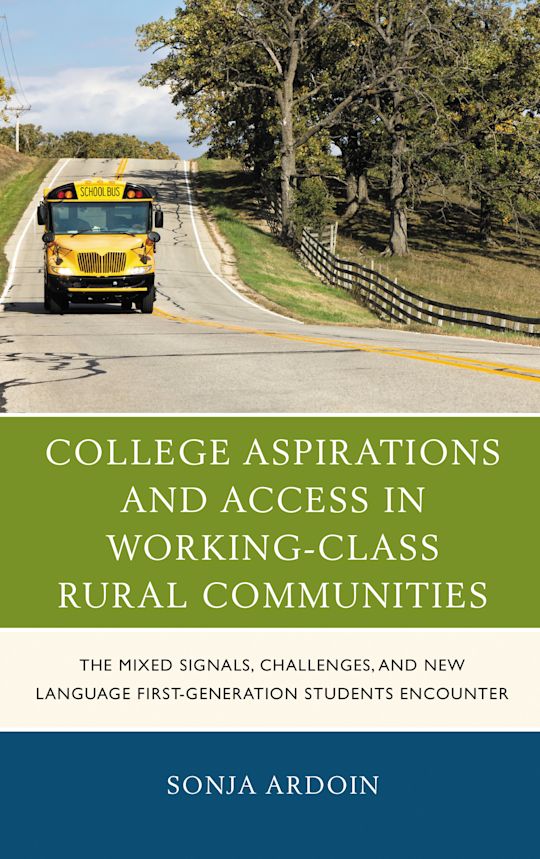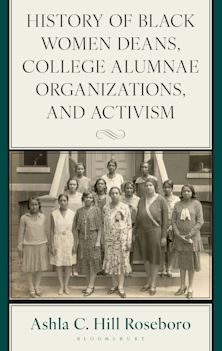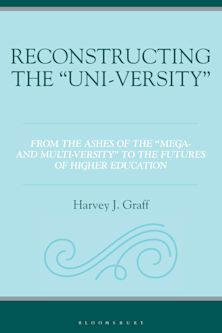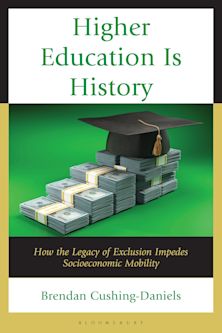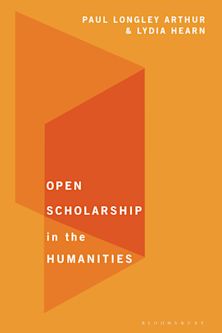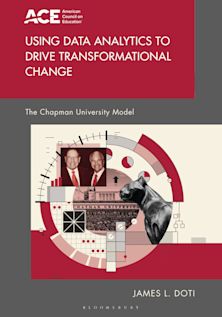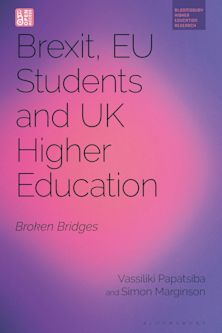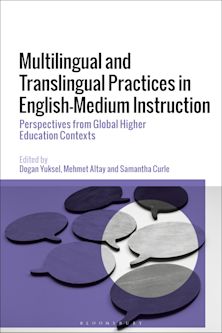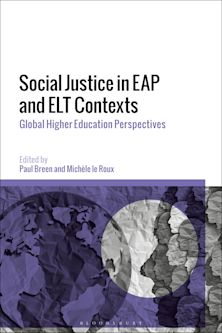- Home
- ACADEMIC
- Education
- Higher Education
- College Aspirations and Access in Working-Class Rural Communities
College Aspirations and Access in Working-Class Rural Communities
The Mixed Signals, Challenges, and New Language First-Generation Students Encounter
College Aspirations and Access in Working-Class Rural Communities
The Mixed Signals, Challenges, and New Language First-Generation Students Encounter
You must sign in to add this item to your wishlist. Please sign in or create an account
Description
College Aspirations and Access in Working Class Rural Communities: The Mixed Signals, Challenges, and New Language First-Generation Students Encounter explores how a working class, rural environment influences rural students’ opportunities to pursue higher education and engage in the college choice process. Based on a case study with accounts from rural high school students and counselors, this book examines how these communities perceive higher education and what challenges arise for both rural students and counselors. The book addresses how college knowledge and university jargon illustrate the gap between rural cultural capital and higher education cultural capital. Insights about approaches to reduce barriers created by college knowledge and university jargon are shared and strategies for offering rural students pathways to learn academic language and navigate higher education are presented for both secondary and higher education institutions.
Table of Contents
Foreword
Acknowledgements
Author's Note
Introduction. Rural Research Reasoning
Chapter 1. Rural Representation
Chapter 2. The College Access Gap for Rural Students
Chapter 3. Putting the Pieces Together: Connections between a College Choice Model, Cultural Capital, and College Access, Knowledge, and Jargon
Chapter 4. “More Trouble Than It's Worth or Path to a 'Better Life'?”: Rural Attitudes About College
Chapter 5. “I Know What B.S. Means, Just Not In Those Terms”: Rural Students' Encounters With College Knowledge
Chapter 6. “I Have More to Do Than I Can Possibly Do Well”: Rural Counselors' Challenges with College Counseling
Chapter 7. Aspirations and Access Assignments For Everyone In Education: Strategies For Rural, Public High Schools, Rural Communities, Higher Education, And Policymakers
References
Appendices
A. USDA ERS Nonmetropolitan Map
B. USDA ERS Changing Metro Status Map
C. USDA ERS Rural Areas Map
D. 2015 U.S. Census Data on MapDot
E. USDA ERS Low Education Counties M
Product details
| Published | 20 Dec 2017 |
|---|---|
| Format | Hardback |
| Edition | 1st |
| Extent | 156 |
| ISBN | 9781498536868 |
| Imprint | Lexington Books |
| Dimensions | 236 x 161 mm |
| Series | Social Class in Education |
| Publisher | Bloomsbury Publishing |
About the contributors
Reviews
-
“You don’t know what you don’t know.” This participant quote exemplifies this well-researched, engaging, and timely book about rural, first generation, and working class students and their opportunities to access college knowledge and preparation. Ardoin bares light on this under-researched population and exposes the challenges rural students and schools face in terms of bridging the rural high school-college gap. She awakens us to the revolving door system of college admissions and exposes the stratification inherent in a variety of college processes. These processes often hinder rural students success in entering and persisting at institutions of higher education. Rural, first-generation, and working class students and families don’t know what they don’t know. It is incumbent on rural schools to be a place that gathers and disseminates knowledge about college such that rural, first-generation, and working class students are as competent and competitive as their urban and suburban peers.
Leslie Locke, University of Iowa
-
Ardoin provides an in-depth view of the current state of secondary school systems in rural communities, including especially alarming information on how this system affects the students themselves and places strain on rural high school guidance counselors. Rurality and geographic location as identifiers of underserved students are not yet common among academic literature, yet as shown, they greatly affect the ability and aspirations towards higher education of rural students. Rural students nationally will greatly benefit if readers implement the advice proposed in this book.
Karen M. Ganss, Southern Utah University
-
In College Aspirations and Access in Working-Class Rural Communities, Ardoin provides a platform and creates a much needed space for discourse on the college-going experiences of rural, working-class students. Ardoin artfully moves beyond simplistic views of college access by adding complexity to the field of higher education’s collective understanding of social class. In doing so, she sheds light on what it truly means to come from a minoritized social class and a rural background.
Georgianna L. Martin, University of Georgia

ONLINE RESOURCES
Bloomsbury Collections
This book is available on Bloomsbury Collections where your library has access.









